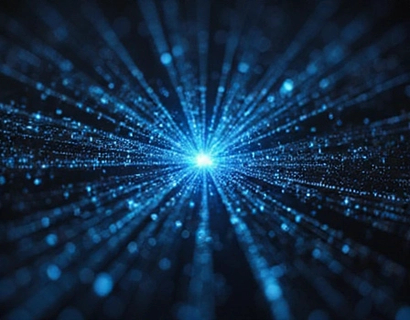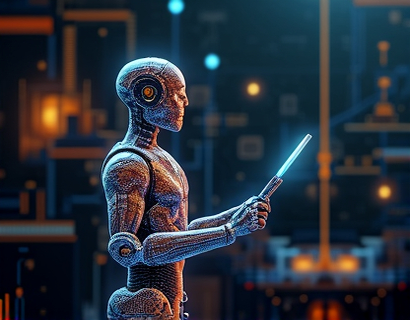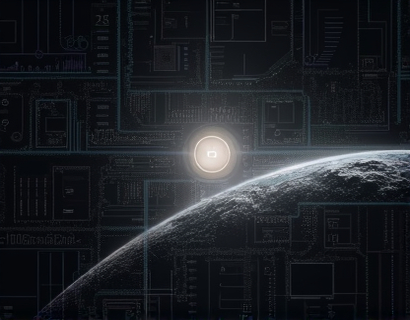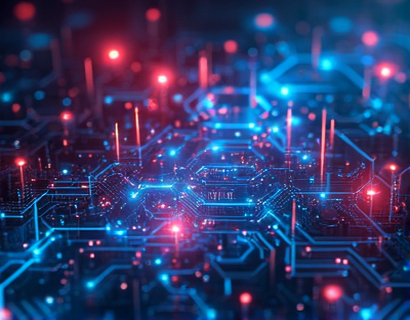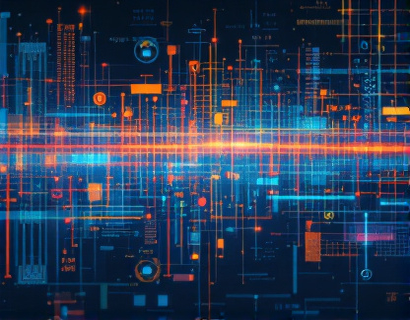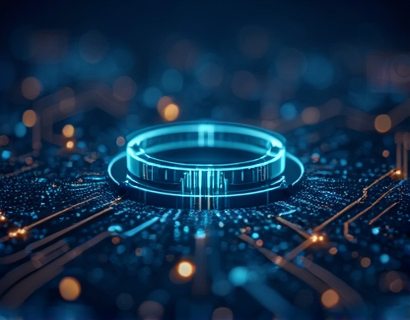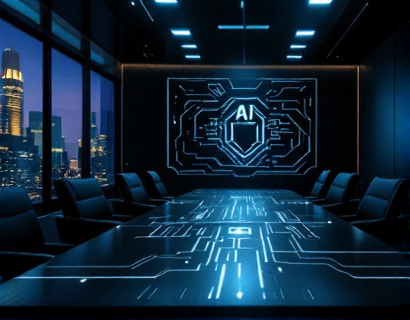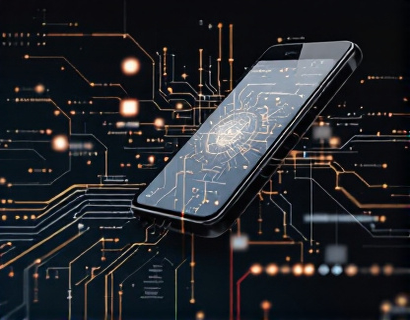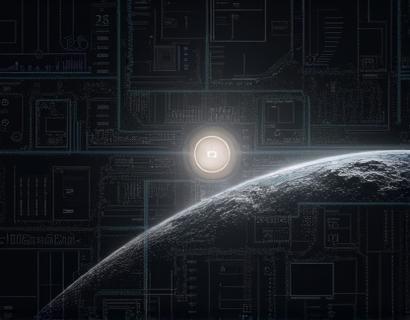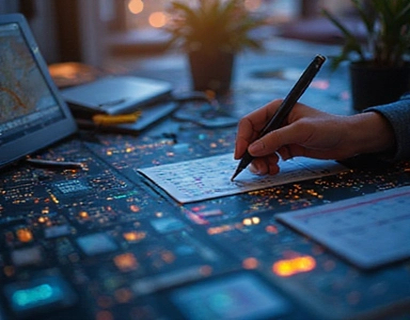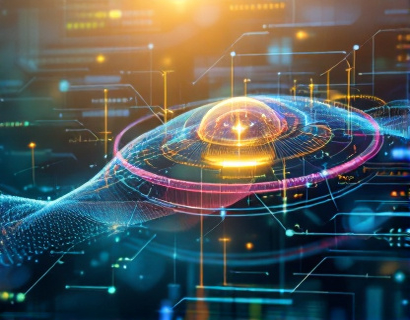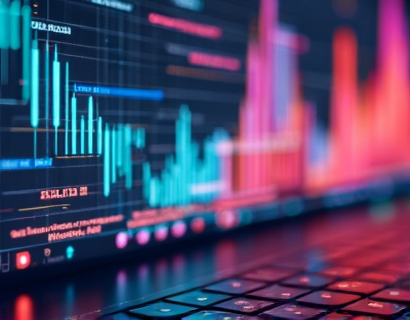Unleashing the Future of Digital App Solutions: The Synergy of Crypto and AI
The intersection of cryptocurrency and artificial intelligence is giving birth to a new era of digital applications, promising unparalleled efficiency, security, and user experiences. This fusion is not just a technological curiosity but a transformative force that is redefining how we interact with digital services. As we delve into this topic, we will explore the innovative solutions that emerge from the convergence of blockchain and AI, and how these technologies are enhancing connectivity and innovation.
The foundation of this revolution lies in the unique properties of blockchain technology. Blockchain, known for its role in cryptocurrencies, offers a decentralized, transparent, and secure way to conduct transactions and store data. When combined with AI, which excels in processing vast amounts of data to uncover patterns and make predictions, the potential for creating advanced digital solutions becomes immense. This synergy is leading to the development of applications that are not only more secure but also more intelligent and user-friendly.
Enhanced Security Through Blockchain and AI
One of the most significant benefits of integrating AI with blockchain is the enhancement of security measures. Traditional security protocols can be bypassed or compromised through sophisticated attacks, but the combination of AI and blockchain introduces a new level of defense. AI algorithms can monitor blockchain networks in real-time, detecting anomalies and potential threats with high accuracy. This proactive approach to security ensures that any suspicious activity is identified and mitigated before it can cause harm.
Moreover, AI can improve the integrity of the blockchain itself. Machine learning models can analyze transaction patterns to identify and prevent fraudulent activities such as double-spending or Sybil attacks. The adaptive nature of AI means that these systems can evolve and improve over time, staying ahead of emerging threats. This dynamic security framework is crucial for building trust in digital applications and ensuring that user data remains protected.
Smart Contracts and AI-Driven Automation
Smart contracts, self-executing contracts with the terms directly written into code, are another area where AI and blockchain intersect. Traditionally, smart contracts are limited to predefined conditions and actions. However, with the integration of AI, these contracts can become more sophisticated and adaptive. AI can analyze external data sources and real-time information to trigger smart contract executions based on more complex and dynamic conditions.
For instance, in supply chain management, AI-powered smart contracts can automatically adjust payment terms based on delivery times, quality assessments, and other relevant factors. This level of automation not only streamlines processes but also reduces the need for intermediaries, lowering costs and increasing efficiency. The combination of AI and blockchain in smart contracts represents a significant step towards more autonomous and reliable digital transactions.
Personalized User Experiences Through AI
The user experience is a critical aspect of any digital application, and AI plays a pivotal role in creating personalized and intuitive interfaces. By leveraging machine learning algorithms, applications can analyze user behavior and preferences to offer tailored content and services. This personalization extends to everything from recommendation systems in e-commerce to customized news feeds and personalized health advice.
In the context of blockchain-based applications, AI can enhance privacy while still providing personalized experiences. Zero-knowledge proofs and other privacy-preserving techniques allow AI to process and analyze data without exposing sensitive information. This ensures that users can benefit from personalized services without compromising their privacy, a crucial factor in building user trust.
Decentralized AI and Data Sovereignty
One of the most promising aspects of the crypto-AI convergence is the concept of decentralized AI. Traditional AI systems rely on centralized data repositories, which can be vulnerable to breaches and misuse. Decentralized AI, on the other hand, distributes data and computation across a network, giving users more control over their data. This approach aligns with the principles of blockchain, promoting data sovereignty and privacy.
In a decentralized AI ecosystem, users can choose to share their data selectively and receive rewards in cryptocurrency for their contributions. This incentivizes data sharing while ensuring that users retain ownership and benefit from their data. AI models trained on decentralized data sets are more representative and less biased, leading to more accurate and fair outcomes.
Challenges and Considerations
While the potential of combining AI and blockchain is vast, there are several challenges that need to be addressed. One of the primary concerns is scalability. Blockchain networks, especially those using proof-of-work consensus mechanisms, can struggle with high transaction volumes and slow processing times. AI applications often require real-time data processing and low latency, which can be challenging to achieve on current blockchain platforms.
To overcome these limitations, researchers are exploring alternative consensus mechanisms and layer 2 solutions that can enhance the scalability of blockchain networks. Additionally, the integration of AI with blockchain requires robust infrastructure and significant computational resources, which can be costly. However, as technology advances and more efficient solutions emerge, these barriers are expected to diminish.
Case Studies and Real-World Applications
Several projects are already demonstrating the power of AI and blockchain in creating innovative digital solutions. One notable example is Decentralized Autonomous Organizations (DAOs), which use smart contracts and blockchain to govern and manage organizations in a transparent and decentralized manner. AI can enhance DAOs by providing data-driven insights for decision-making, optimizing resource allocation, and predicting market trends.
Another area where AI and blockchain are making waves is in the finance sector, particularly with the rise of decentralized finance (DeFi). DeFi platforms leverage smart contracts and blockchain to offer financial services such as lending, borrowing, and trading without intermediaries. AI can improve these platforms by enhancing risk assessment, fraud detection, and algorithmic trading, making DeFi more accessible and reliable.
Future Prospects and Innovations
Looking ahead, the fusion of AI and blockchain is poised to drive further innovations in various domains. In healthcare, AI-driven analysis of blockchain-based medical records can lead to more accurate diagnoses and personalized treatment plans. In the Internet of Things (IoT), AI can optimize the management of decentralized devices, ensuring efficient resource utilization and enhanced security.
The development of interoperable blockchain platforms and AI frameworks will also play a crucial role in the widespread adoption of these technologies. Standardization and collaboration among different projects will facilitate seamless integration and broader application across industries. As the ecosystem matures, we can expect to see more sophisticated and user-centric applications that leverage the strengths of both AI and blockchain.
In conclusion, the combination of cryptocurrency and AI is not just a technological trend but a fundamental shift in how we build and interact with digital applications. By harnessing the power of blockchain for security and decentralization, and AI for intelligence and automation, we are unlocking new possibilities that were once thought impossible. This synergy is set to redefine the digital landscape, offering more secure, efficient, and user-friendly solutions for the future.



